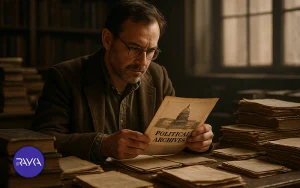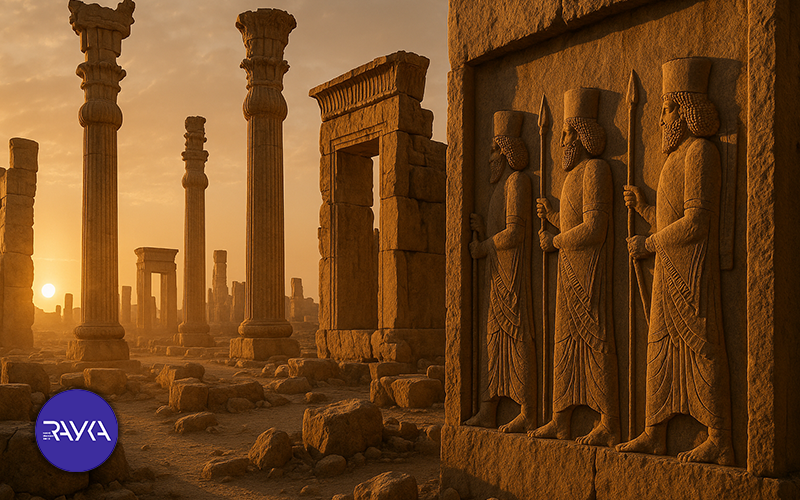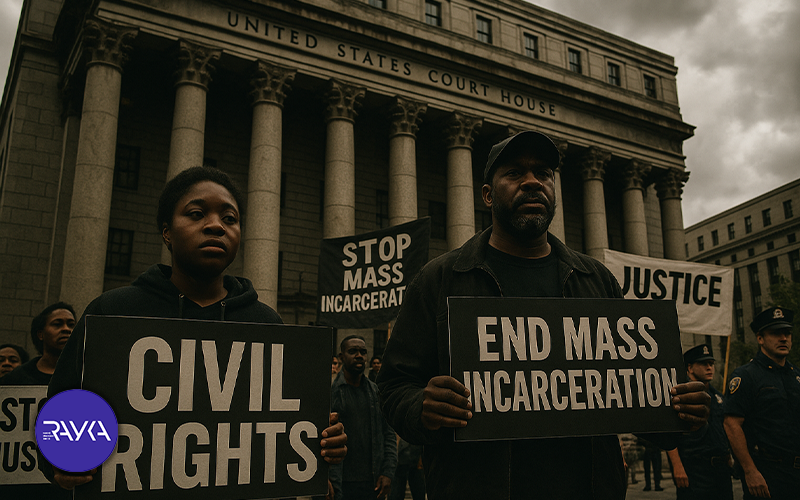
Historical and political documentaries are powerful tools for understanding past events and analyzing political developments.
By exploring key events, figures, and movements, these films give audiences a deeper perspective on history and politics — helping us learn valuable lessons from the past.
These documentaries focus on major historical and political figures, events, and turning points, using archival footage, interviews, and verified documents to provide a clearer understanding of complex historical realities.
The range of topics is vast — from revolutions and political transitions to wars, international conflicts, and social movements.
They also explore the lives and decisions of influential leaders who shaped the course of history. Main themes include:
The use of artificial intelligence in creating historical and political documentaries opens new possibilities for research, visualization, and storytelling.
AI enables the recreation of historical scenes, restoration of old footage, and generation of visual content that brings past events to life with greater clarity and emotion.
Producing such documentaries goes beyond recording history it’s a powerful medium for education, analysis, and raising social awareness.
They help preserve collective memory, inspire researchers and students, and foster dialogue and understanding within society. Key benefits include:
| Advantage | Description |
|---|---|
| Awareness | Documentaries provide accurate and verified information about historical and political events. |
| In-depth Analysis | They allow for detailed examination and analysis of historical events and key figures. |
| Historical Documentation | Documentaries help preserve and record historical events for future generations. |
| Education and Research | They serve as valuable tools for students, researchers, and those interested in history and politics. |
| Dialogue and Reflection | By presenting diverse perspectives, documentaries encourage discussion and critical thinking within society. |
Iranian historical documentaries, with an independent and cultural perspective, present a humanistic and profound image of Iran’s history and civilization — going beyond official or political narratives.
Among Iranian documentaries, there are works that move beyond official or ideological frameworks, offering an independent interpretation of a deep cultural and ancient history — one shaped not merely by politics, but by identity and civilization.
In an era when most historical narratives about Iran focus mainly on contemporary political events, these films strive to portray a more accurate, beautiful, and human vision of Iran — one rooted in its culture and heritage rather than propaganda or power.
Below are several of the most prominent Iranian historical documentaries recognized internationally:
This research-based documentary tells the story of Taq Kasra, one of the greatest symbols of ancient Persian architecture.
Directed by Pezhman Akbarzadeh, an Iranian journalist and researcher based in the Netherlands, the film objectively traces the history of this magnificent Sassanid monument; from its glory to its destruction.
Using rare archival footage, expert interviews, and digital reconstructions, Taq Kasra explores not only architecture but also the deeper connection between history, identity, and cultural memory.
The documentary was screened at several international festivals, including the Smithsonian Institute and the World Heritage Film Festival. It is considered one of the first Iranian documentaries to present pre-Islamic Persian heritage through independent historical research.
Produced in the United States, this research-based film revisits the civilizations of ancient Iran with scientific and historical precision.
Narrated by Makan Karandish, the documentary reconstructs and reinterprets Elamite, Achaemenid, and Sassanid civilizations; highlighting their impact on science, governance, and art in the ancient world.
Built on museum archives and scholarly studies, it challenges Western-centric historical narratives and restores Iran’s true place in global history.
Among Iranian scholars abroad, The Forgotten Glory of Iran is praised as a successful example of academic, independent historical representation.

Directed again by Pezhman Akbarzadeh, this documentary explores Derbent, a little-known city in modern-day Dagestan, as the northern frontier of the Sassanid Empire.
Through stunning visuals of the city’s massive defensive walls and interviews with Russian and Iranian historians, the film redefines Iran’s cultural and historical borders beyond its current political boundaries.
More than a film about architecture, Derbent is a dialogue between history and the collective memory of the Iranian people
Directed by Mehrad Sheikhan, this documentary examines the evolution and influence of Iranian animation; focusing on creativity, censorship, and cultural heritage.
By tracing the art form from pre-revolutionary times to the new generation, it presents a critical yet hopeful view of Iran’s artistic innovation.
Screened at several European festivals, Iranian Animation is regarded as a key example of independent, intellectual documentary filmmaking in Iran.
Golestan Studio, founded by Ebrahim Golestan, played a crucial role in shaping modern Iranian cinema by providing a creative space for poetic and independent documentaries.
Far from official narratives, these films explored Iran’s social and cultural realities through a poetic and human lens.
Among the most iconic works produced in this environment is “The House is Black”, directed by Forough Farrokhzad, which merged poetic expression with documentary storytelling — redefining realism in Iranian cinema.
Golestan’s openness to creative freedom allowed filmmakers to experiment with style and content, paving the way for a new generation of independent Iranian documentarists.
Globally, many acclaimed documentaries explore major political events and key historical figures with accuracy and insight.
Through archival footage, interviews, and expert analysis, these works offer deep understanding of wars, revolutions, and social movements; engaging audiences in historical and ethical reflection.
Directed by Errol Morris, this Academy Award-winning film examines the Vietnam War and the role of Robert McNamara, U.S. Secretary of Defense, exploring the moral and political complexities behind wartime decisions.
Directed by Ava DuVernay, this groundbreaking documentary investigates the history of racial inequality and mass incarceration in the United States.
With a critical sociopolitical lens, 13th analyzes systemic racism and its lasting impact on justice and human rights.

This documentary explores the life of Fred Rogers, the American television host, and his cultural and social impact. Directed by Morgan Neville, Won’t You Be My Neighbor? takes a humanistic and cultural approach, showing how one individual, through thoughtful programming and meaningful interactions, can leave a profound mark on society and culture.
Historical and political documentaries are powerful tools for understanding and analyzing key events and figures in history and politics.
By providing accurate information, in-depth analysis, and well-researched narratives, these documentaries contribute to public awareness and education.
Furthermore, by examining important historical figures and events, they create opportunities for discussion and dialogue within society. From documenting wars and revolutions to analyzing social movements and the actions of key personalities, historical and political documentaries effectively preserve collective memory while offering educational and research opportunities for future generations.